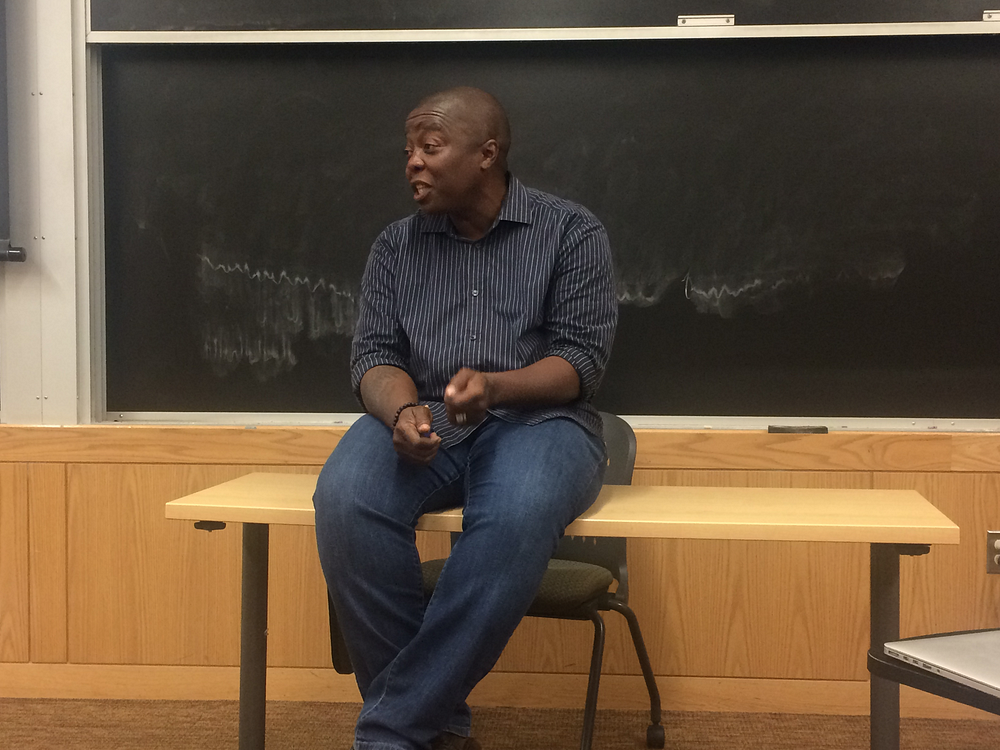Yance Ford ’94 shows award winning Strong Island
By Michelle Chung ’20, A&E Editor

Yance Ford ’94 was at Hamilton College as a nineteen-year old sophomore when he first learned of the murder of his older brother, William Ford, Jr., back in their hometown of Long Island. 25 years later, he has returned to the Hill to screen his documentary Strong Island, a piece that explores the emotional reactions of a family in the face of tragedy, the lead-up to a black individual’s murder by a white man, and the presence of racial injustice in the United States.
William Ford, Jr. was the eldest of three children at 24 years old, as well as a teacher in the process of becoming a corrections officer. While driving his girlfriend’s car one day, he was hit by the tow truck of Mark Reilly, a nineteen-year old employed at an auto-body shop. The two of them had agreed on a deal where the auto shop would fix all damages to the car and William, in turn, would not file a police report. After two months with no repairs, the men had become involved in two separate verbal altercations, with the second resulting in Reilly shooting and killing Ford. Due to the decision made by an all white grand jury of twenty-three members, Reilly was never indicted for manslaughter, and his actions were deemed as self-defense.
Strong Island focuses on the intricacies and complications that Yance Ford encountered when trying to understand his brother’s murder and the court’s decision. Containing a series of commentary from William Ford, Jr.’s friends and family, as well as pictures from their past, the film has won six awards, including a Special Jury Prize at the 2017 Sundance Film Festival and a Jury Prize at the Frameline San Francisco International LGBTQ Film Festival. The documentary has also received four award nominations, acknowledgement from dozens of media publications, and branding as a Netflix Original.
Despite Strong Island’s focus on the investigation of his brother’s death,Yance Ford reminded viewers prior to the screening of the documentary that the film does not mimic the expectations found in typical crime films. Rather than an attempt to uncover evidence or follow new leads for the case, the film places a strong emphasis on delving into the emotional struggles that William Ford, Jr.’s family and friends had to face after his death. Throughout the ten years that Ford worked on the film, he accumulated over hundreds of hours of conversation with his mother that were not used in the film, as well as moments with other family members and friends.
Another unique aesthetic component that is frequently seen throughout the film is the inclusion of extreme close-ups focusing on Yance Ford as he speaks straight to the camera. Such a technique not only forces the audience to encounter a black face at a distance closer than some have probably ever encountered, but also emphasizes his desire to connect to his audience.
When commenting on his return to Hamilton, Yance Ford reflected on the fact that many of the events in the film started gestating while he was on campus. Consequently, he mentioned the importance of having a conversation with students on campus about the film and the subject matter of the film, especially as it pertains to news cycles today.
Strong Island, as a documentary driven by emotional labor and the injustices imposed on a loved one, illustrates the reality of racism present in today’s social, political, and judicial system, a truth that for many is difficult to digest and recognize. The murder of William Ford, Jr. speaks to the ever-present discrimination forced upon people of color.
Through Yance Ford’s documentary, which is an incredible collection of personal narratives, sentimental photographs, and explicit details of a murder, viewers receive a better understanding of what the United States justice system is and has become. Consequently, they must construct their own understandings of what constitutes reasonable fear, and when it justifies murder.


